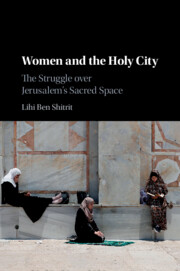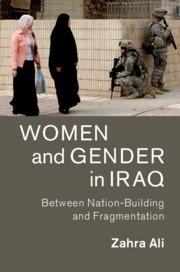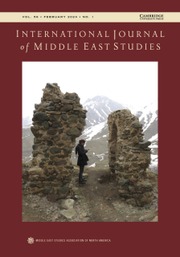Women and the Holy City
Jerusalem's Temple Mount/al-Haram al-Sharif is the holiest place in the world for Jews, the third holiest place for Muslims and a constant feature in the Israeli-Palestinian conflict. Yet the gendered dimensions of inter-communal disputes over sacred space in Jerusalem, as well as in other holy places around the world, have been largely neglected, as have women's roles in these site-specific conflicts. An implicit association of women with peaceful politics and syncretic religious practices has obscured the fact that women are often key actors in inter-communal contestation of holy places. This study looks to three contemporary women's movements in and around Jerusalem's Sacred Esplanade: Women for the Temple - a Jewish Orthodox movement for access to Temple Mount; The Murabitat - Muslim women activists devoted to the protection of Al-Aqsa Mosque from Jewish claims; and Women of the Wall - a Jewish feminist mobilization against restrictive gender regulations at the Western Wall. Lihi Ben-Shitrit demonstrates how attention to gender and to women's engagement in conflict over sacred places is essential for understanding what makes contested sacred sites increasingly 'indivisible' for parties in the inter-communal context.
- The first comprehensive and comparative account of women's involvement in the contestation over Jerusalem's sacred space
- Explores both Jewish-Israeli and Muslim-Palestinian cases, as well as both progressive and conservative movements in one sacred space
- Sheds light on the complex and problematic usage of the discourse of religious freedom in contested holy sites
Reviews & endorsements
'Offering unique empirical research on the struggle over Jerusalem as a sacred site, this study adds a gender dimension to the existing literature which too often has focused solely on the male perspective. Lihi Ben Shitrit also overcomes intra-communal division by investigating, in an unprecedented way, the position of Jewish and Muslim women. In doing so, she shows a remarkable command of a vast array of disciplines from political science to gender studies. A must read.' Jocelyne Cesari, University of Birmingham and Georgetown University
‘This adds greatly to our knowledge by telling the role of women in one of the most complex conflict of our days - the guardianship of the holy sites of Jerusalem. This highly recommended book makes important contributions to our understanding of the role of women in Jewish ritual and the Arab-Israeli conflict.’ Motti Inbari, University of North Carolina, Pembroke
‘A fascinating ethnographic study of the struggle over Jerusalem’s sacred sites. Ben Shitrit closely studies and follows three women’s groups, two Jewish, one Muslim, and her research reveals important, novel insights regarding religious-women movements, and their part in religious conflicts.’ Nahshon Perez, Bar-Ilan University
‘This sophisticated account of the gendered dimensions of contemporary conflict over Jerusalem’s sacred esplanade is a must-read for scholars of religion and politics. Challenging the naïve assumption of women as 'do-gooders,' Ben Shitrit shows that women’s religious freedom activism has entrenched the very divisions and hierarchies within and between communities that it is presumed to tame or transcend.’ Elizabeth Shakman Hurd, Northwestern University
Product details
June 2024Paperback
9781108707183
232 pages
229 × 152 × 12 mm
0.345kg
Available
Table of Contents
- Introduction
- 1. Women for the temple and the (in)divisibility of Temple Mount
- 2. Women of the wall: feminism between intra- and inter-communal contestation
- 3. Al-aqsa will not be divided! Murabitat traveling to, studying in, and fighting for Al-aqsa
- Epilogue – the question of religious freedom.




